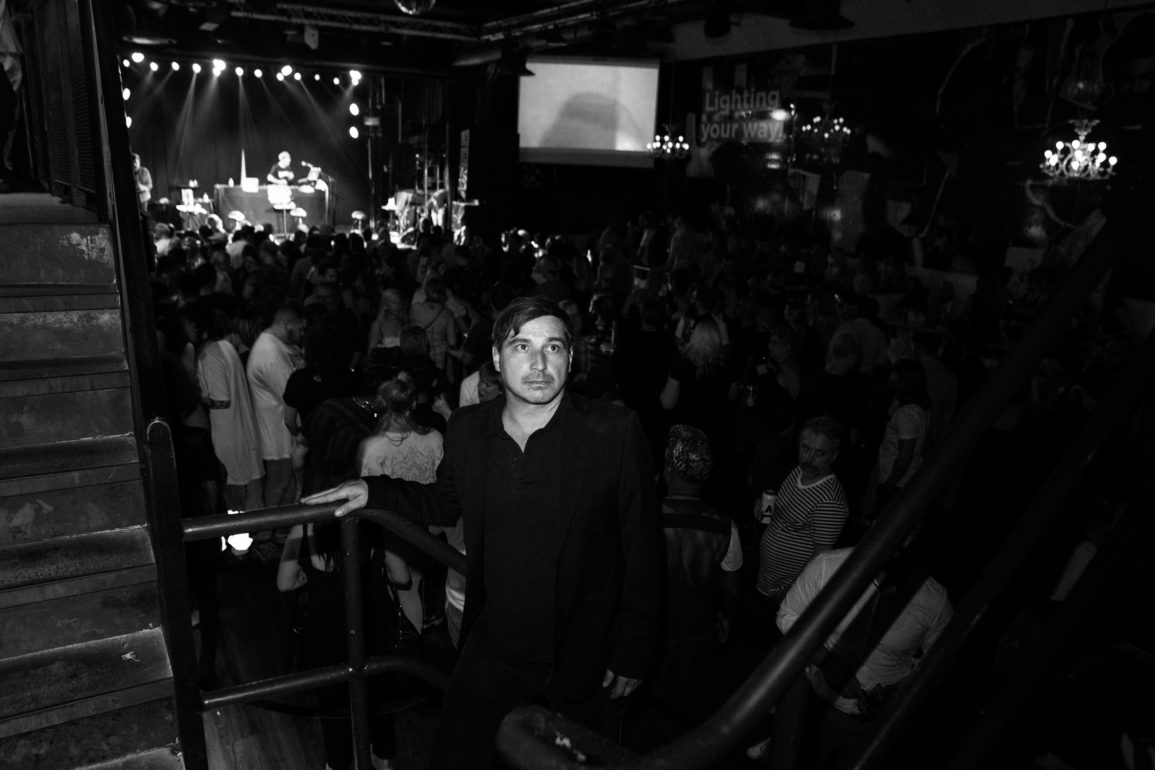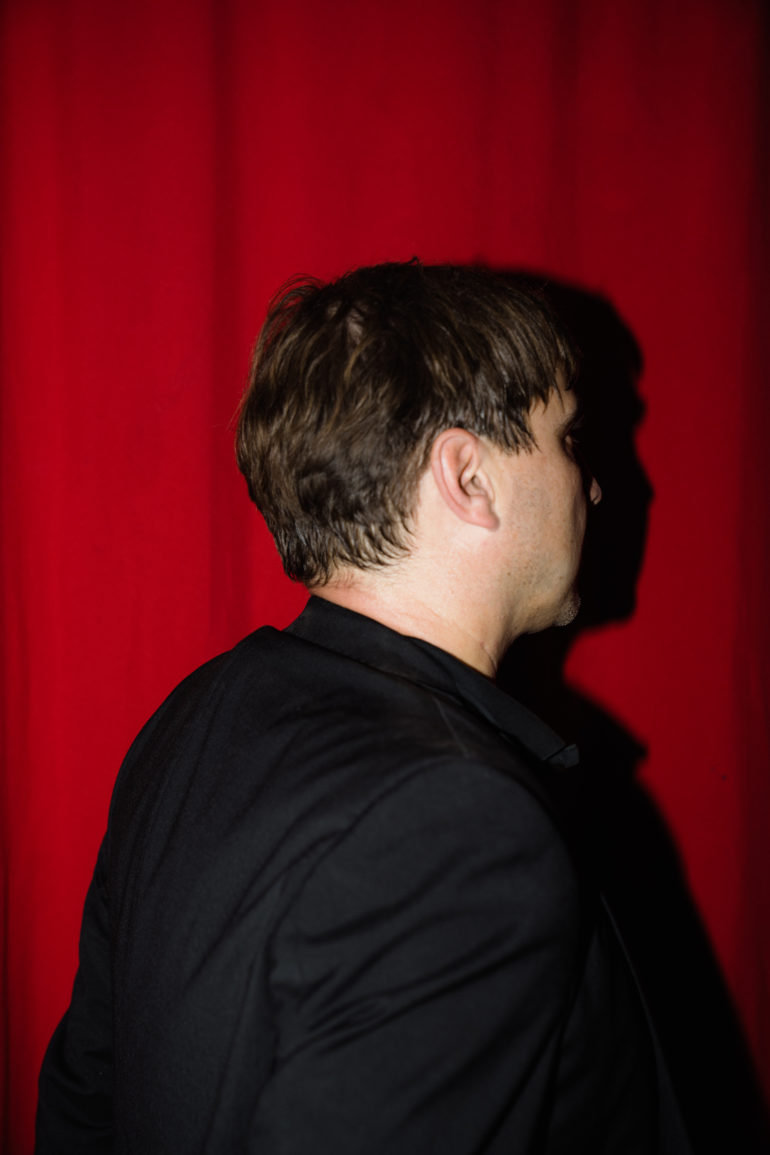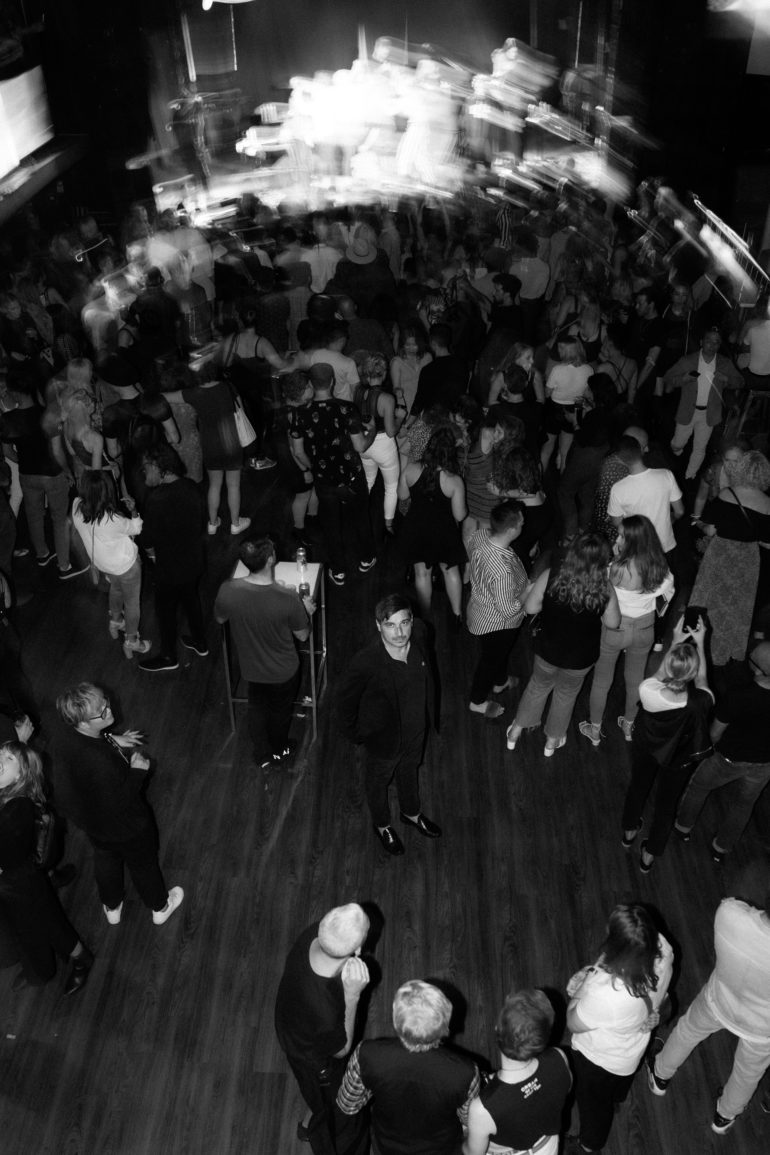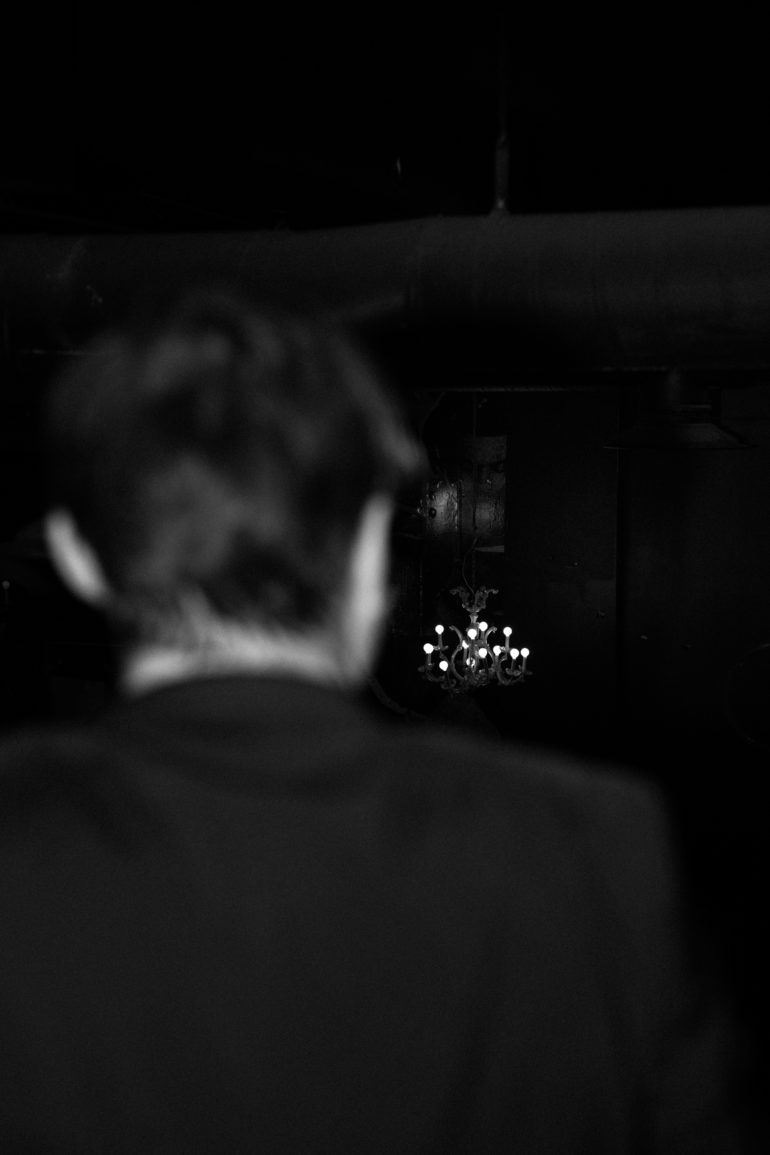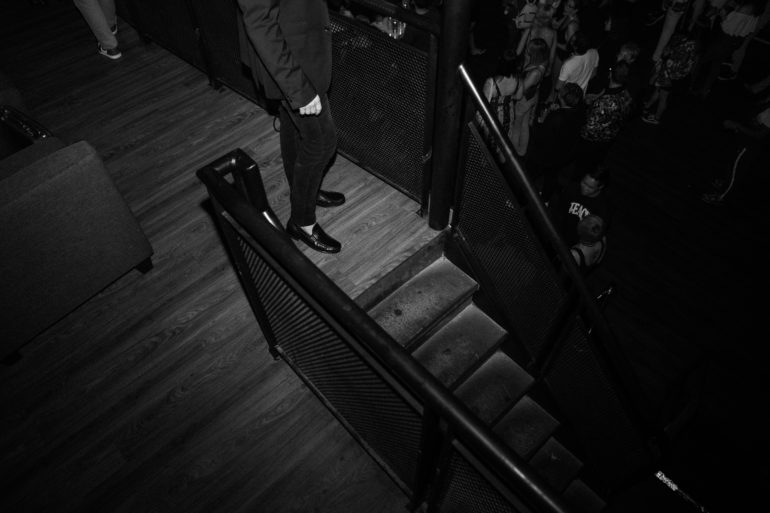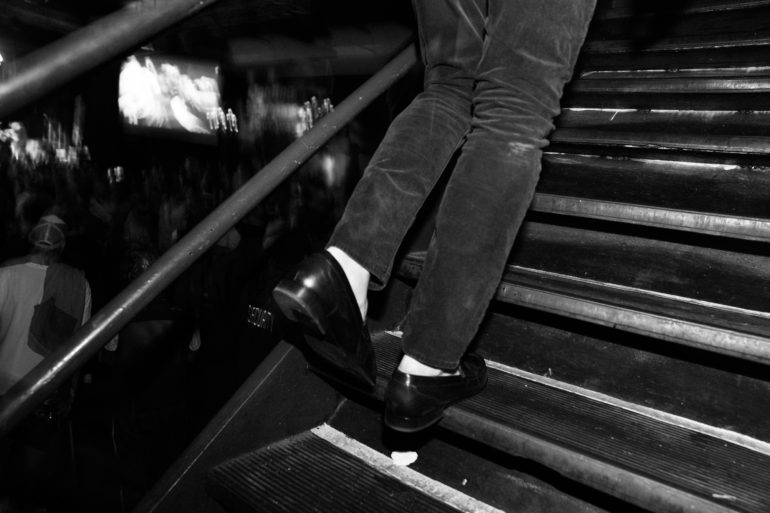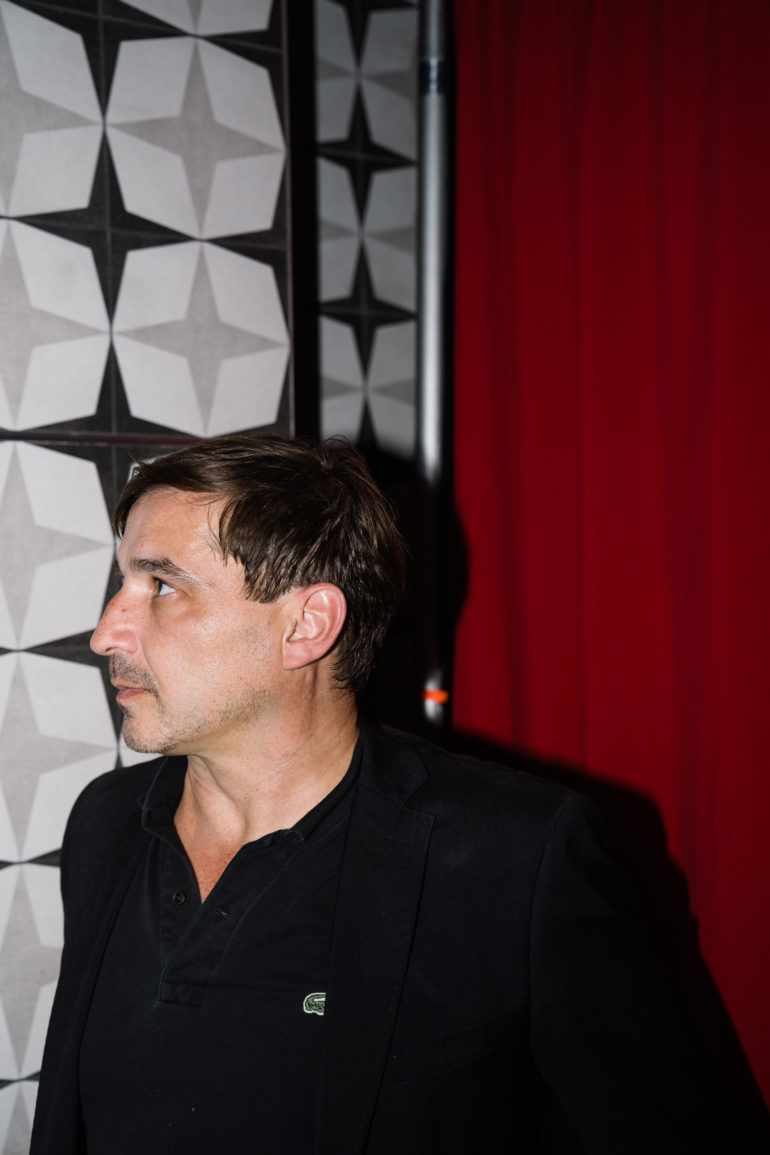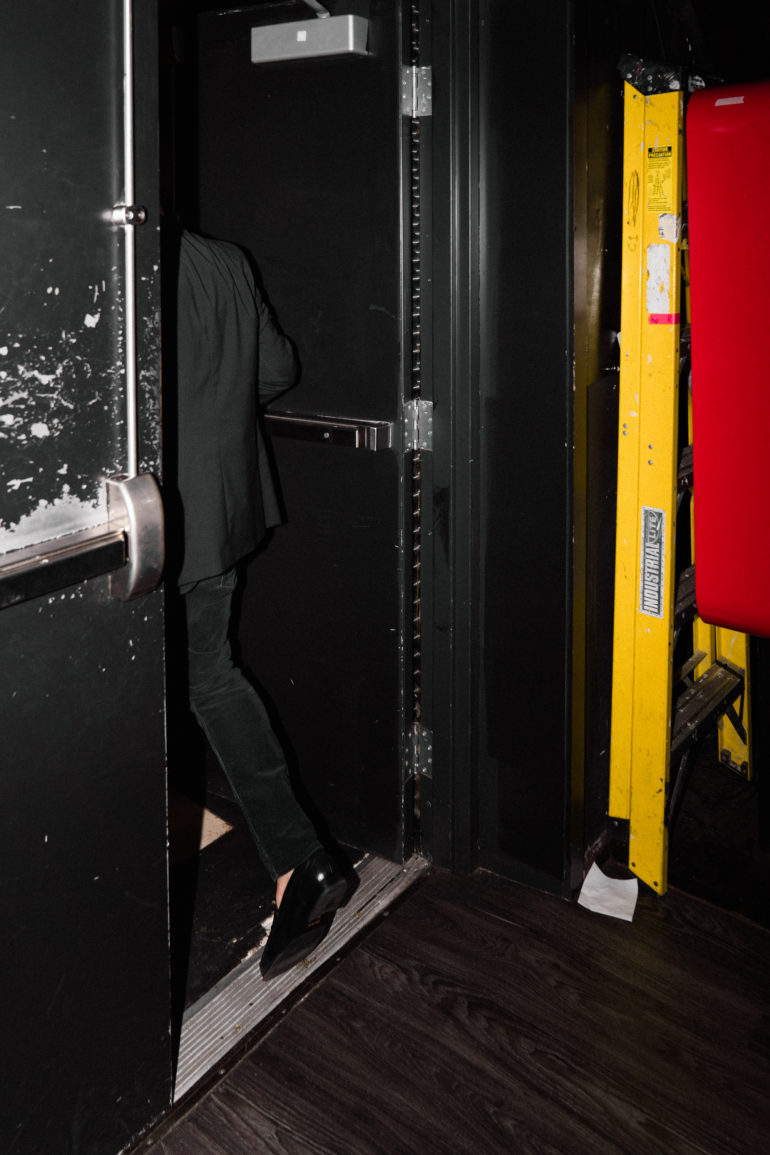A few weeks ago, I bumped into Jorge and showed him some of the questions we were thinking of asking for this cover story. Jorge grabbed my phone, entered his contact and messaged the questions to himself. After he gave back the phone, I notice he had labeled the contact ‘Jorge from Mod’, which is funny because that’s how I know him—I had no idea what his last name was. When I brought that up to him, he laughed and told me I wasn’t unique. “People identify me by where they know me from—Jorge from Mod, Jorge from QET, Jorge from Aquario, Jorge from Alto Basso.’ Which Jorge we know doesn’t matter and it obviously doesn’t matter to him. What’s important is the impact he’s made on Toronto’s nightlife and how thousands of people associate him with the various businesses he has ran over the years.
Currently Jorge hosts the party at the Mod Club Theatre, Queen Elizabeth Theatre and FountainBlu. He is the babysitter making sure nobody gets into trouble. He is the curator who filters through countless emails every week from bands who want to perform at the Mod Club. He is the businessman who works closely with promotors making sure the artist’s needs are taken care of. He is the host greeting concert goers at the door. He is Jorge from wherever you met him. He is Jorge Dias.
Luso Life: You began working early and it seems like you’ve been in the industry forever, how did you get into it?
Jorge Dias: One Step at a time (laughs). It all started with a small café when I was 18—Café Aquario—and it’s kept growing from there. Aquario was very popular cafe in the heart of Little Portugal. After running the café for seven years I felt that it was time for change and an opportunity to purchase a bigger venue presented itself, so off I went to open Alto Basso which became a hotspot on College Street. This was a different concept from the café that included a restaurant and live DJs.
Later, the biggest opportunity was presented by Bruno Sinopoli (owner of Mod & QET) who gave me a chance to manage two of Toronto’s best live music venues—the Mod Club Theatre and shortly after Queen Elizabeth Theatre. Loving what you do gives you opportunity.
LL: How have club crowds changed over the years?
JD: I feel like now there is a greater diversity in the age of the audiences. Some shows will have audiences ranging from 16 to 60-year-olds. Some audiences will be 30+ and others will be almost entirely under 18. I attribute this to the lines of genres blurring, reunion tours and the rise of YouTube stardom. Overall in the last 5 years alone I’ve seen a massive boost in the amount of live shows around the city and in the amount of people going out to shows. I believe that we’re in the middle of a very exciting time in not only music, but more specifically, Canadian music. Toronto has become increasingly more renowned for its sports and its music industry. This has had a huge impact on not only tourism, but also the number of bands touring through Canada, which in turn has had an impact on the amount of people going out to shows.
LL: Do you go to other venues? Are there any you’ve strived to model yourself after?
JD: My favorite venue is Budweiser Stage because of its open concept by the lake—it reminds me of being in Portugal. I look forward to watching events at the Bud Stage. Being in a business where I’m surrounded by loud music daily, quiet time is very important, so sitting at a restaurant patio with friends or watching TV on days off is how I relax before the next stretch of concerts.
A gentleman by the name of Bechara “Charles” Khabouth has been my idol from day one in this industry. Khabouth as a nightclub owner, restaurateur, music promoter, and hotelier they call him the “King of Clubs” due to his influence on the city’s nightlife. Stilife, a ritzy nightclub for the posh crowd and the Guvernment, a live music venue that was also a hotspot for the city’s Rave Kids were both his.
LL: What’s it like running a venue known for hosting artists before their rise? Have there been any artists that performed where you knew they would become huge?
JD: I feel like it’s difficult to be star struck in this line of work. You see the artists off the stage and they’re just like everyone else, human. You see their humble personality come out in those candid moments. It’s hard to feel star struck when you saw them lounging in their pyjamas 3 hours before the show.
LL: How has working in this industry affected your personal life? Do you feel it has consumed the majority of it, or heavily modified it? Good, bad, etc.
JD: I think, like anyone in this industry, this career can consume every corner of your life. You sort of have to eat, sleep and breathe it in order to be successful. Not to say it’s a bad thing. I absolutely love what I do and I think that not only translates into my work, but also makes some of the sacrifices totally worth it. The long hours, stress and fast-paced environment doesn’t take as much of a tole when you’re in love with what you do.
LL: You were a runner at a young age, have you kept up with this or other activities to maintain your personal wellbeing?
JD: Sports was definitely in my blood growing up. Soccer, track and field, football, hockey played it all but it all came to a complete halt once I entered the entertainment business. Late hours and early mornings never end well. (laughs)
LL: Musicians, artist, celebrities, often fall into a habit of substance abuse. As someone who is fully submerged in this world, have you personally seen this side of stardom? Has it made its way into your own life.
JD: Sex, drugs and rock & roll! Substance abuse is certainly present in this industry. It’s incredibly easy to fall into bad habits when you’re not only surrounded by it on a day-to-day basis, but when it’s also normalized. I’ve seen it totally consume people and even end careers. I think seeing the negative repercussions of it has really helped keep myself in check.
MOD CLUB
722 College St, Toronto
themodclub.com
WHO’S PLAYED THE MOD? JORGE HAS PUT A PLAYLIST TOGETHER FEATURING 21 OF HIS FAVOURITES.
WORDS: DAVID GANHAO
PHOTOS: NOAH GANHÃO
